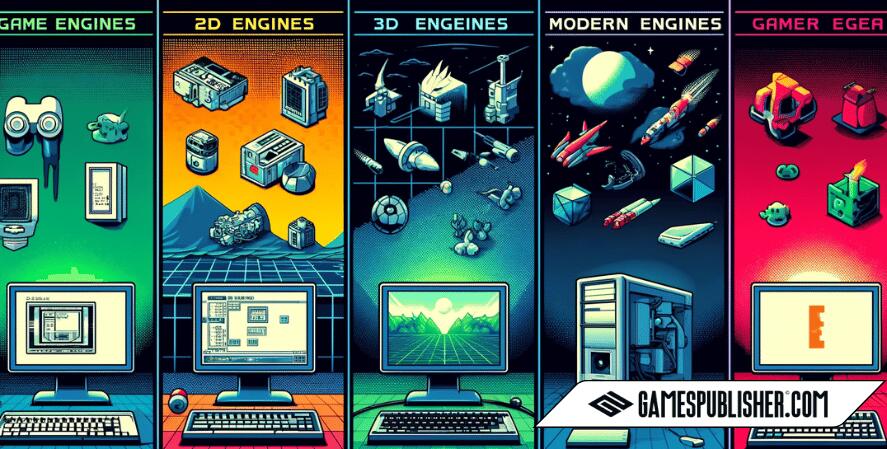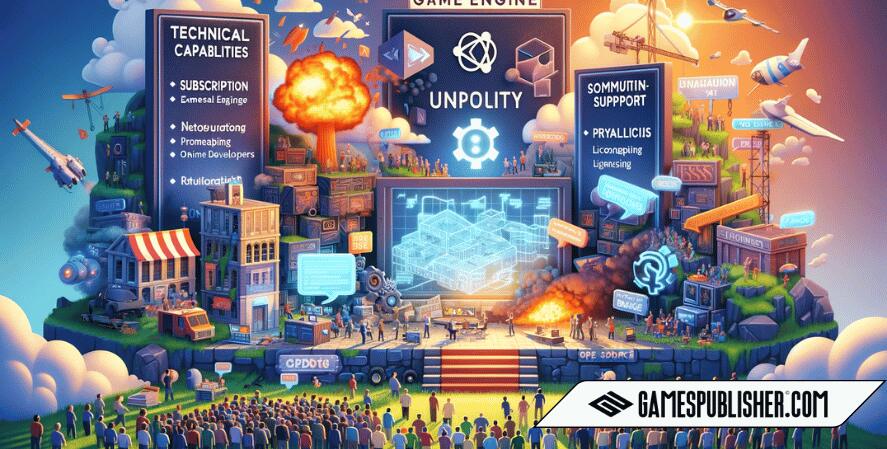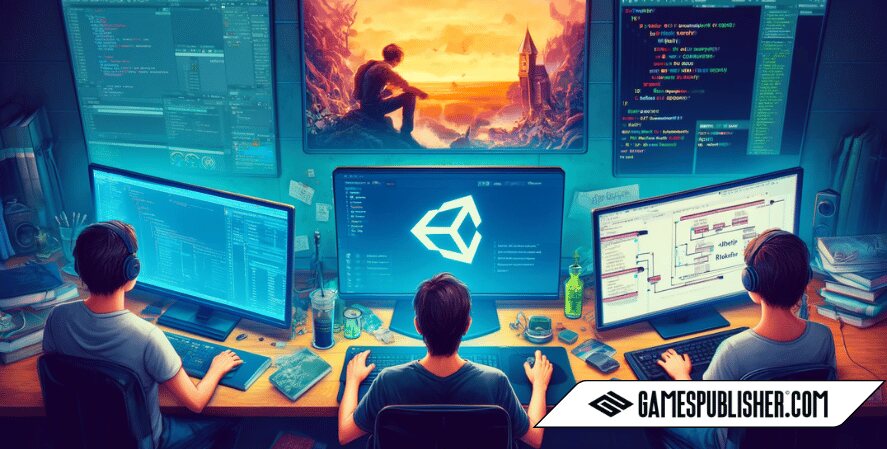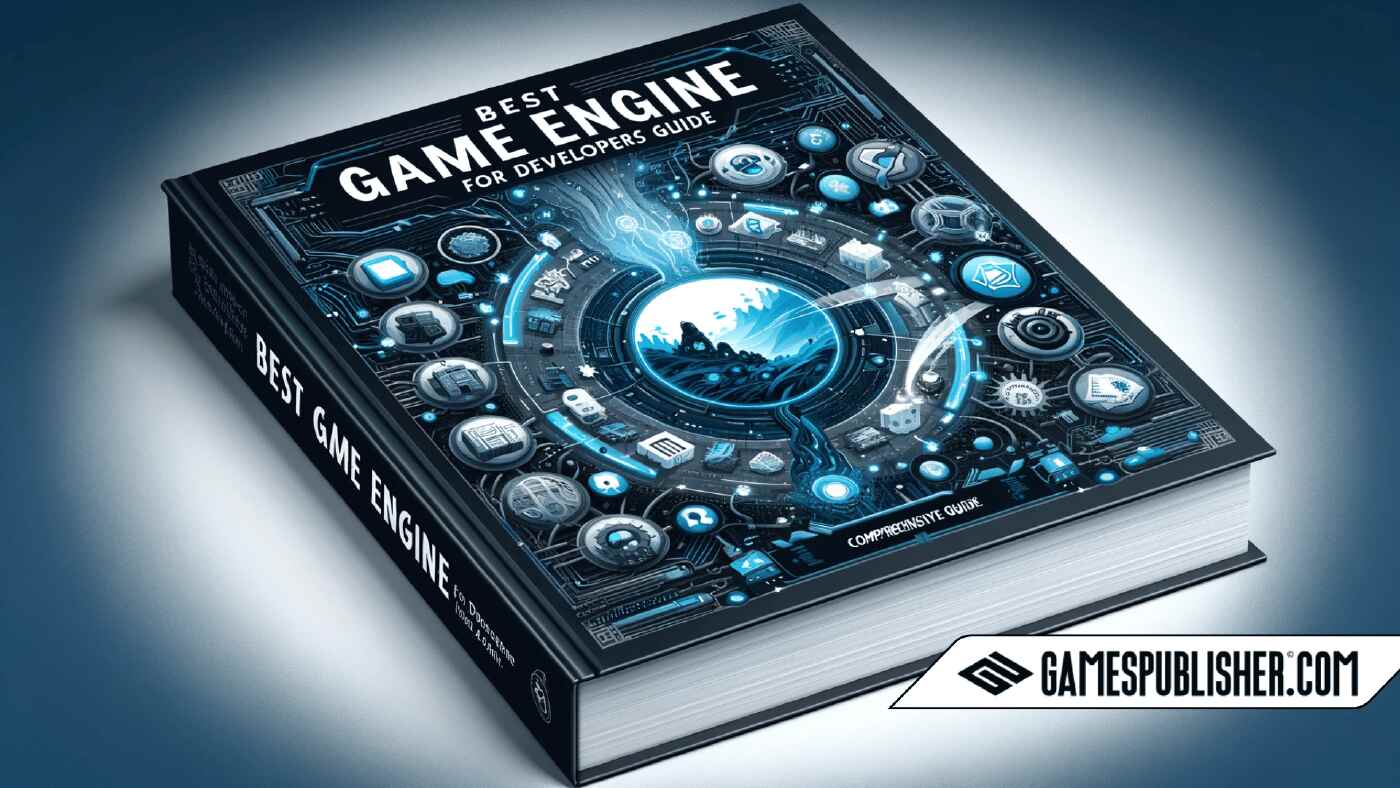Welcome to Gamespublisher.com, your go-to resource for game developers and publishers. This guide dives into the essential factors to consider when choosing a game engine, a pivotal decision that can significantly shape the success of a gaming project.
The right engine can empower creativity, streamline workflows, and contribute to the technical quality of your game, making it stand out in the competitive gaming industry.
Understanding Game Engines

What Are Game Engines?
Game engines are software frameworks that provide game developers with tools to create and manage game content. They offer various functionalities, including graphics rendering, physics simulations, sound management, and asset handling, allowing developers to focus on crafting compelling gameplay experiences. Game engines simplify the development process by integrating these essential tools into a cohesive system.
The Evolution of Game Engines
Game engines have evolved significantly, from simple 2D frameworks to sophisticated 3D engines. Early engines, such as those used in the 1980s, laid the groundwork for modern engines by offering basic rendering capabilities. The 1990s saw the advent of 3D engines, with significant milestones such as the release of id Tech and Unreal Engine, which revolutionized the gaming industry. Today, engines have continued to evolve, incorporating advanced features such as real-time ray tracing, AI integration, and support for virtual reality (VR) and augmented reality (AR).
Criteria for Choosing a Game Engine

Technical Capabilities
One of the most critical factors in selecting a game engine is its technical capabilities. Graphics rendering, physics engines, and other technical features play a key role in delivering immersive gaming experiences. For instance, Unreal Engine’s powerful rendering capabilities make it ideal for AAA games with photorealistic graphics, while Unity’s versatility allows developers to create games across various genres, from 2D platformers to complex 3D simulations.
Community and Support
A strong community and support system are invaluable assets when choosing a game engine. A vibrant community offers resources such as online forums, documentation, and tutorials, which can be crucial for troubleshooting and updates. Unity and Unreal Engine boast large, active communities, providing ample resources for developers at all levels. Similarly, Godot’s growing open-source community contributes to its ecosystem, offering extensive documentation and support.
Pricing and Licensing
Different licensing models, such as free, royalty-based, or subscription, can significantly influence the choice of a game engine. Unity offers a free tier for indie developers, with a paid subscription model for professionals. Unreal Engine, on the other hand, operates on a royalty-based model, making it accessible to developers of all sizes. Godot stands out as an open-source engine, offering full functionality without licensing fees, making it an attractive option for indie developers and small studios.
Popular Game Engines Among Developers

Unity
Unity is a popular choice among developers due to its user-friendly interface, versatility, and strong community support. Its ability to cater to both indie developers and professional studios makes it a versatile engine for a wide range of projects.
Unity’s robust asset store, coupled with its comprehensive documentation and tutorials, enables developers to create diverse games efficiently.
Popular games developed using Unity include “Pokémon Go”, “Monument Valley”, and “Kerbal Space Program”.
Unreal Engine
Unreal Engine is known for its powerful graphics rendering capabilities, strong asset library, and broad adoption among professional studios. It has been used in various game genres, particularly AAA games, due to its ability to create photorealistic graphics and immersive experiences.
The engine’s Blueprint visual scripting system also simplifies game development, making it accessible to developers with varying levels of programming expertise.
Notable games developed with Unreal Engine include “Fortnite”, “Gears of War”, and “Street Fighter V”.
Godot
Godot is an open-source game engine that offers ease of use and is suitable for both 2D and 3D game development. Its growing community contributes to its ecosystem, offering extensive documentation and support.
Godot’s node-based system provides a straightforward workflow, making it an excellent choice for indie developers and smaller studios.
Games like “Deponia”, “The Interactive Adventures of Dog Mendonça & Pizzaboy”, and “Escoria” are examples of projects made with Godot.
Other Notable Engines
Other engines like CryEngine, RPG Maker, and GameMaker Studio have unique strengths and specific use cases.
CryEngine is known for its advanced rendering capabilities, making it suitable for visually stunning games such as “Crysis” and “Prey”.
RPG Maker specializes in creating role-playing games, with titles like “To the Moon” and “Yume Nikki” demonstrating its capabilities.
GameMaker Studio provides a comprehensive platform for creating 2D games, highlighted by successful titles such as “Undertale” and “Hyper Light Drifter”.
Successful Games and Their Engines
Choosing the right game engine is crucial as it can significantly influence the development process and the final quality of the game. Here are some examples of successful games and the engines they used, illustrating the strengths and capabilities of each engine.
Unreal Engine: Fortnite
“Fortnite” is a testament to the capabilities of Unreal Engine, particularly in creating high-quality, engaging multiplayer experiences. Developed by Epic Games, “Fortnite” utilizes Unreal Engine’s advanced graphics rendering and robust asset library to deliver a dynamic battle royale game that has captivated millions worldwide.
The engine’s scalability allows for constant updates and innovations, keeping the game fresh and engaging.
Unity: Hollow Knight
“Hollow Knight,” developed by Team Cherry, showcases Unity’s flexibility across different gaming genres. This game stands out as a masterful blend of 2D platforming and intricate gameplay mechanics, all beautifully rendered in a hand-drawn art style that highlights Unity’s support for diverse artistic expressions.
Unity’s extensive tools and supportive community have enabled a relatively small team to create a rich, immersive world that has received widespread acclaim and built a strong fanbase.
Unreal Engine: Street Fighter V
“Street Fighter V” demonstrates Unreal Engine’s prowess in the fighting game arena, leveraging its powerful visual capabilities to create fluid, high-impact combat sequences.
Capcom’s choice of Unreal Engine for this installment allowed them to significantly enhance the game’s visual effects and character animations, ensuring a visually stunning and responsive gameplay experience that meets the expectations of a competitive fighting game community.
Unity: Kerbal Space Program
“Kerbal Space Program” is another remarkable example of what can be achieved with Unity. This simulation game offers a deep, engaging exploration of spaceflight mechanics, allowing players to build and manage their own spacecraft.
The use of Unity enabled the developers at Squad to implement complex aerodynamic and orbital physics in a user-friendly interface, making it accessible yet challenging for space enthusiasts.
Developer Testimonials
Game developers often provide valuable insights into their experiences with different game engines, emphasizing how their choice of engine has impacted their workflow, creativity, and the final quality of their products.
Unity: Empowering Indie Developers
Many indie developers have expressed their appreciation for Unity, citing its user-friendly interface and extensive community support as pivotal factors in their development process. For instance, a developer from a small studio shared, “Unity’s streamlined workflow and its massive asset store have allowed us to bring our game ideas to life with limited resources and manpower.
The ability to easily find solutions or get help from other developers on forums and through tutorials has significantly sped up our development time and eased many challenges typical of indie game development.”
Unreal Engine: A Favorite Among Professional Studios
On the other hand, professional studios often highlight the advantages of Unreal Engine, particularly praising its cutting-edge graphics capabilities and comprehensive feature set.
A lead developer at a well-known gaming studio noted, “Unreal Engine’s powerful rendering engine and detailed environmental effects have enabled us to push the boundaries of what’s possible in AAA games. Its robustness allows for high fidelity graphics and complex simulations, which are crucial for creating immersive worlds and realistic characters.”
Godot: A Versatile Choice for Creatives
Developers also commend open-source engines like Godot for their flexibility and community-driven enhancements. A game designer using Godot mentioned, “The openness and modular design of Godot have been game changers for our projects.
It’s incredibly empowering to be able to modify the engine to our specific needs and then share those developments with the community, fostering an environment of collaboration and innovation.”
GameMaker Studio: Streamlining 2D Game Development
Furthermore, GameMaker Studio receives particular praise for its efficiency in developing 2D games. An experienced developer focusing on 2D platformers shared, “GameMaker Studio’s intuitive drag-and-drop interface and robust scripting language have made it incredibly easy to prototype and iterate on our game designs quickly.
This has not only enhanced our creative freedom but also reduced our go-to-market time, which is invaluable in the competitive indie game landscape.”
Conclusion
Choosing the right game engine is very important for a successful game development project. This decision impacts the development process, technical quality, and commercial success of the game. We encourage developers to explore and experiment with different engines, leveraging resources like Gamespublisher.com to find the perfect fit for their needs.
By selecting the right engine, developers can streamline their workflows, enhance creativity, and deliver high-quality games to the gaming industry.

